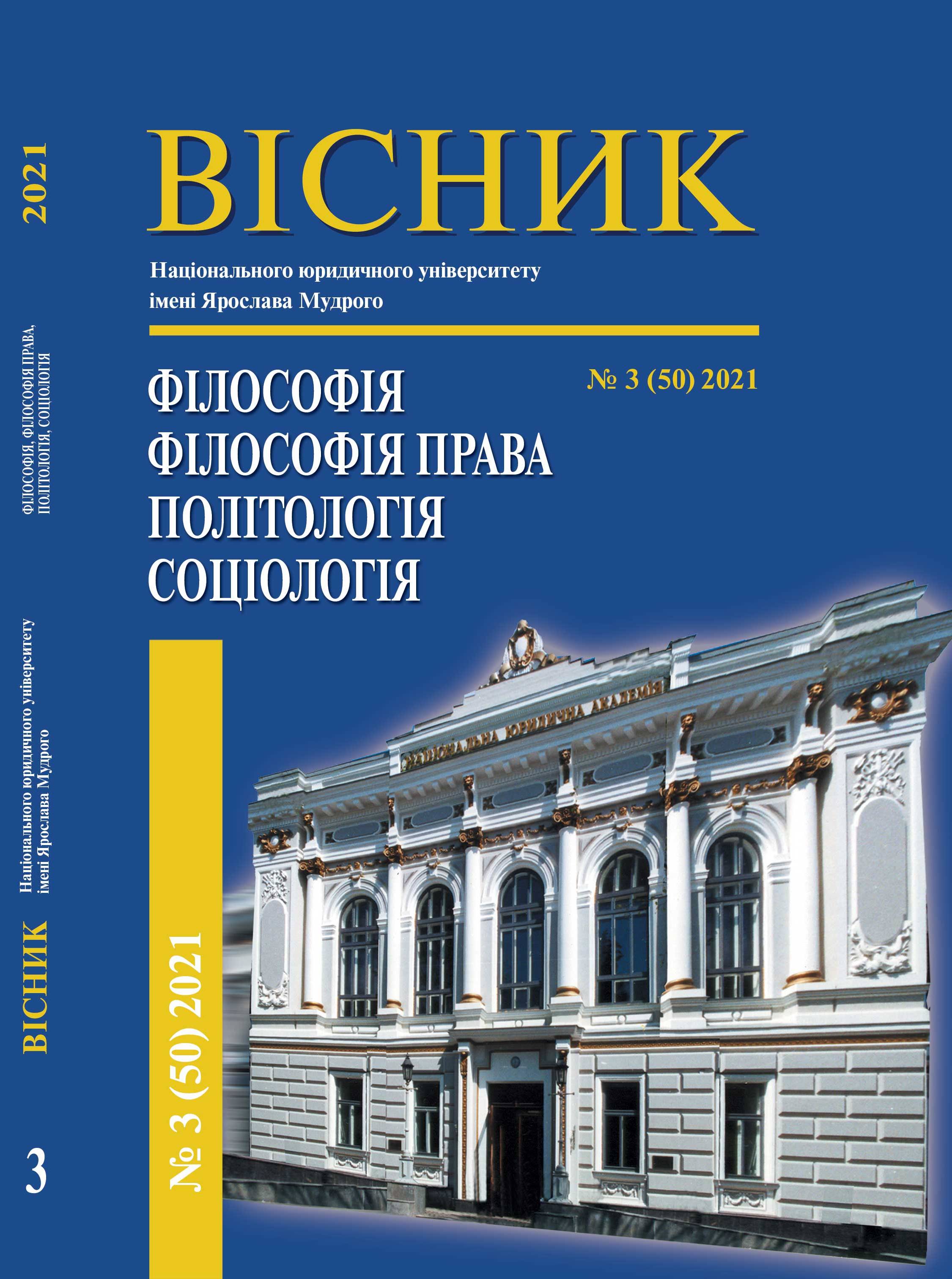КОНЦЕПЦІЯ ГРОМАДЯНСЬКОГО СУСПІЛЬСТВА, ЙОГО ФОРМУВАННЯ В УКРАЇНІ, ФУНКЦІЇ ТА ОСОБЛИВОСТІ
THE CONCEPT OF CIVIL SOCIETY, ITS FORMATION IN UKRAINE, FUNCTIONS AND FEATURES
Author(s): Khrystyna MARTSIKHIV, Liliia Yevgenivna HorbachovaSubject(s): Human Rights and Humanitarian Law, Civil Society
Published by: Національний юридичний університет імені Ярослава Мудрого
Keywords: civil society; the concept of civil society; state power; political party; welfare state; state of rights;
Summary/Abstract: The concept of «civil society» in modern political science is given. The relevance of its theoretical and practical aspects which is caused by the obvious increase the role of ordinary citizens and their voluntary associations in all spheres of human society: economic, political, social, spiritual, is analyzed. The successes of public organizations and movements of people of good will in the field of detente of international tensions, in providing assistance to peoples affected by natural disasters, catastrophes and other social unrest are widely known. It was established that the basis of victories is the development of civil society, high activity of citizens and their voluntary associations. This is achievable only in a sufficient- ly developed civil society. It has been proved that success comes where the business activity of citizens and the non-governmental structures they create increases, state intervention in economic, social and spiritual life is limited, where civil society develops and improves. The theoretical and applied aspects of the phenomenon of civil society are comprehended through a theoretical analysis of the concept of civil society in the history of socio-philosophical and political thought, from Plato and Aristotle to the views of modern researchers. It is emphasized that civil society is a type of social system, the hallmark of which is the real multi-subjectivity of economic, social, cultural and political life. The formation and development of civil society in Ukraine during the years of independence is analyzed. It is proved that the formation of civil society is manifested in the formation of its institutions – voluntary public associations, public movements, trade unions, independent media, public opinion as a social institution, elections and referendums as a means of public expression and protection of public-dependent interests. judicial and law enforcement systems, etc. The peculiarities of the interaction of civil society and the rights’ state are substantiated.
Journal: Вісник НЮУ імені Ярослава Мудрого. Серія: Філософія, філософія права, політологія, соціологія
- Issue Year: 50/2021
- Issue No: 3
- Page Range: 182-195
- Page Count: 14
- Language: English

